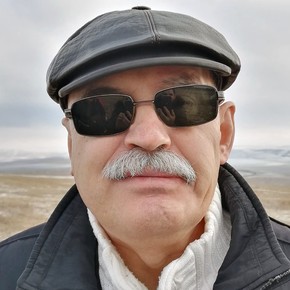Biography
On December 12, 2019, in Nevinnomyssk (Stavropol Territory), the Investigative Committee opened criminal cases under two "extremist" articles against 9 elderly believers. One of the victims of the harassment was a man with a disability of the first group - 60-year-old Sergey Kuznetsov.
Sergey was born in 1959 in the village of Agadyr, Dzhezkazgan (today Karaganda) region of Kazakhstan. His father worked as a crane operator on the railway, his mother as a laundress and a cook in a kindergarten. Sergey was the only child in the family. As a child, he enjoyed playing football and hockey, as well as cycling with friends. Sergey has two adult daughters.
After graduating from school, Sergey worked as a shift supervisor at a 500 kV substation. However, he had to quit his job when he was diagnosed with a severe brain disease in 1988. His eyesight deteriorated sharply and later underwent two major surgeries. In 1991 he received the first group of disability.
Then Sergey began to think about the meaning of life, asking himself the question: "If I suffered here and will still suffer in hell, then why such a life?"
He soon found answers to his questions in the Bible. From this book, he learned that God is good and loves people. The biblical words "dust you are and to dust you will return" gave him confidence that God does not torment anyone after death. Out of gratitude to the Creator, Sergey decided to become a Christian.
In 1990, due to deteriorating health, Sergey and his family moved to Vladikavkaz, and then to Neftekumsk. In 1996, he underwent another operation in Stavropol. Since 2006, Sergey has been living in Nevinnomyssk, where his two daughters help provide their father with proper care.
The criminal prosecution further undermined the man's already poor health: his eyesight deteriorated even more, insomnia began, and he can move around the apartment only by holding on to the walls. According to him, he lives only because of the power of God.
Sergey's relatives, relatives and friends wonder how it is possible to accuse a disabled person of the first group, who has problems with vision, hearing and is barely able to move, of extremism.
